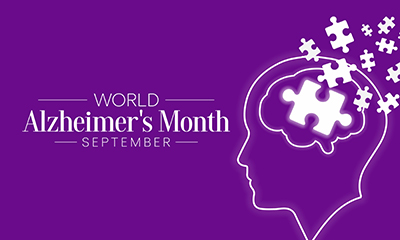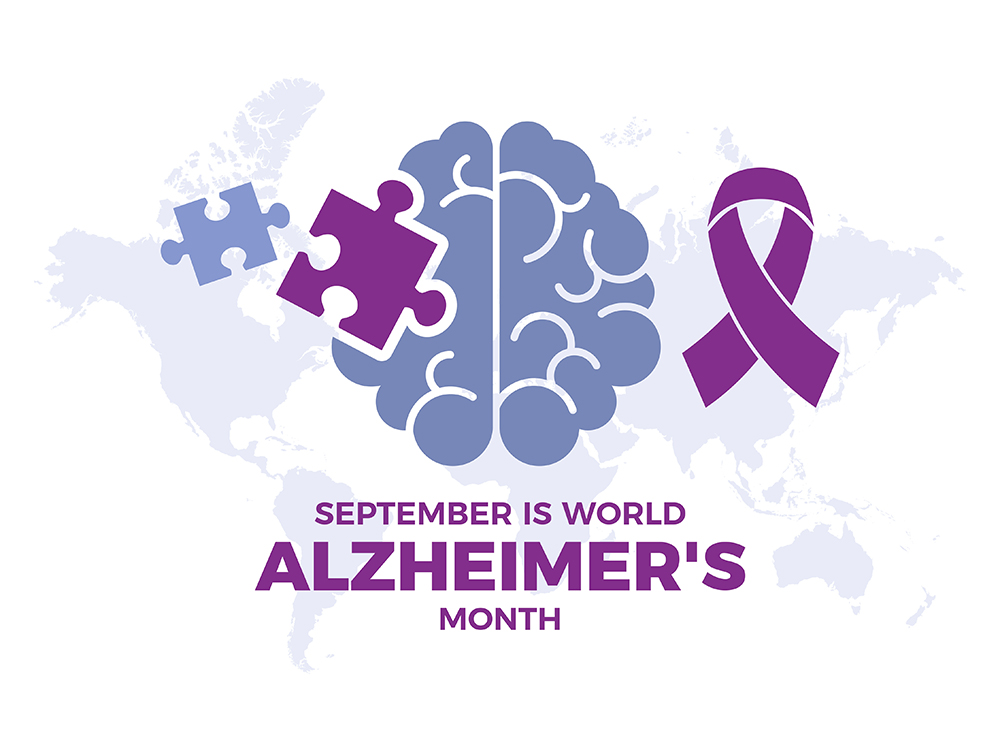
As September unfolds, so does World Alzheimer’s Month, a crucial time for raising awareness about Alzheimer’s disease and dementia worldwide.
MCR Health, a community-focused organization, joins the global effort to educate, support, and honor those affected by this devastating disease. In this blog, we’ll delve into the importance of World Alzheimer’s Month, discussing who is affected, recognizing the warning signs, exploring treatment options, and sharing how you can observe this significant month with us.
Who is Affected?
Alzheimer’s disease is a progressive neurological disorder that primarily affects the elderly but can also impact individuals in their 40s and 50s. It is the most common cause of dementia, a condition characterized by a decline in cognitive function, memory loss, and changes in behavior. While Alzheimer’s does predominantly affect older adults, it also has far-reaching implications for families, caregivers, and society as a whole.
According to the Alzheimer’s Association, over 6 million Americans are currently living with Alzheimer’s disease, and this number is projected to increase exponentially in the coming decades. The impact of Alzheimer’s extends beyond the individuals diagnosed, affecting their families and caregivers emotionally, physically, and financially.
Warning Signs
Recognizing the early warning signs of Alzheimer’s disease is crucial for early intervention and improved quality of life. Some common signs include:
- Memory loss that disrupts daily life: Forgetting important dates, repeating oneself, or relying on memory aids more than usual.
- Challenges in planning or problem-solving: Difficulty in concentrating, making decisions, or following a familiar recipe.
- Difficulty completing familiar tasks: Struggling to complete daily tasks, like dressing or cooking.
- Confusion with time or place: Getting disoriented about dates, seasons, or locations.
- Trouble understanding visual images and spatial relationships: Difficulty reading, judging distances, or identifying colors.
- New problems with words: Struggling to follow or join a conversation, repeating oneself, or using the wrong words.
- Misplacing things and losing the ability to retrace steps: Putting items in unusual places and being unable to find them later.
- Decreased or poor judgment: Making poor decisions regarding money or personal hygiene.
- Withdrawal from work or social activities: Losing interest in hobbies, socializing, or work-related activities.
- Changes in mood or personality: Experiencing mood swings, depression, or increased irritability.
It is essential to remember that experiencing one or more of these symptoms does not necessarily mean one has Alzheimer’s disease, but early detection is crucial for proper diagnosis and treatment.
What Treatment Looks Like
While there is currently no cure for Alzheimer’s disease, early diagnosis and management can help slow its progression and improve the individual’s quality of life. Treatment options include:
- Medication: Several medications, such as cholinesterase inhibitors and memantine, can help manage cognitive symptoms and delay their progression.
- Lifestyle interventions: A healthy diet, regular exercise, mental stimulation, and social engagement can contribute to better cognitive health.
- Supportive care: Caregiver support and education, as well as access to community resources, can greatly benefit both individuals with Alzheimer’s and their families.
- Clinical trials: Participation in clinical trials may provide access to experimental treatments and contribute to research on finding a cure.
Observing World Alzheimer’s Month
World Alzheimer’s Month serves as an opportunity to unite in the fight against Alzheimer’s disease. Here are ways you can get involved:
- Raise Awareness: Share information about Alzheimer’s disease and its impact on social media, or participate in local awareness events.
- Volunteer: Consider volunteering with organizations dedicated to Alzheimer’s research and support.
- Learn More: Attend webinars, workshops, and conferences to deepen your understanding of Alzheimer’s disease and its management.
- Support Fundraising Efforts: Contribute to fundraising campaigns that support Alzheimer’s research and support services.
MCR Health’s Commitment
While MCR Health does not have a dedicated neurology department, we remain steadfast in our commitment to providing comprehensive care to our patients. We collaborate with specialists and organizations that can offer the expertise and support needed by individuals and families affected by Alzheimer’s disease. Our primary care physicians can also play a vital role in early detection and management, working in tandem with specialists to provide the best care possible.
As we observe World Alzheimer’s Month, let us remember that Alzheimer’s disease affects not just individuals but entire communities. MCR Health stands in solidarity with those affected by Alzheimer’s, offering support and resources to improve the quality of life for both patients and their caregivers. Together, we can raise awareness, support research, and ultimately work toward a world without Alzheimer’s disease.

